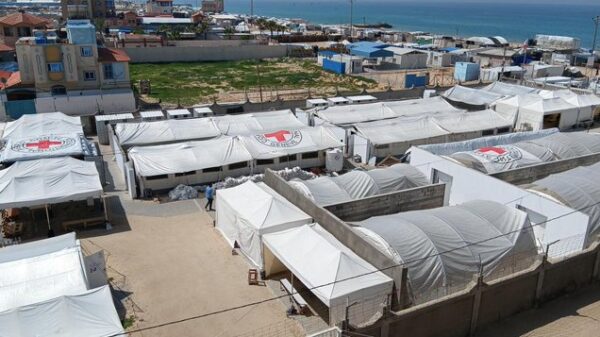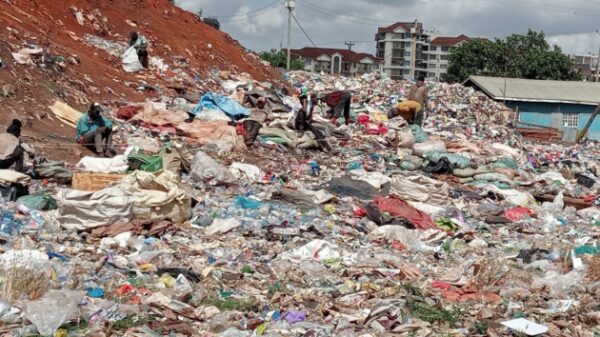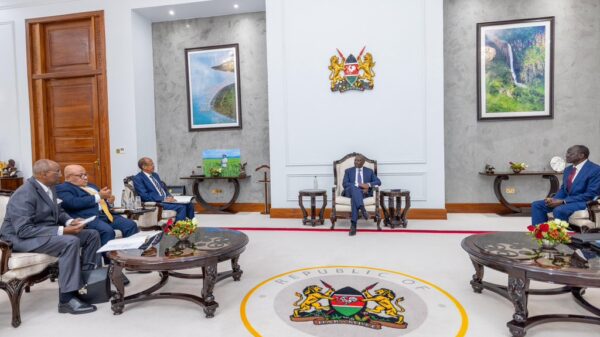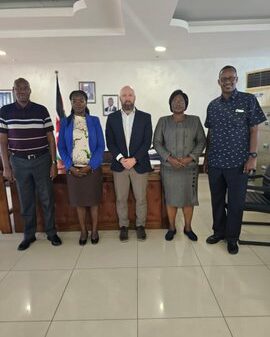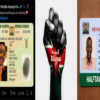HARARE, April 24 – A unity government led by President Robert Mugabe may be the best way to break Zimbabwe’s post-election deadlock, state media said Wednesday, as the first result from a recount of votes was declared.
The state-run Herald newspaper — a government mouthpiece — said it was clear that no side won a majority in the presidential election on March 29 and the best way forward was to form a government of national unity.
But Justice Minister Patrick Chinamasa told AFP the proposal was not government policy, saying: "Our position is very clear. We were approached for a government of national unity and we rejected that."
Chinamasa said the government and opposition were "diametrically opposed."
The leader of the opposition Movement for Democratic Change (MDC), Morgan Tsvangirai, has previously talked about the idea of a power-sharing deal but with himself, rather than Mugabe, at its helm.
Asked about the proposal on Wednesday, Tsvangirai said he wanted "an inclusive government" but added that the question of a national unity administration "does not arise at the moment."
British Prime Minister Gordon Brown meanwhile called for an arms embargo on Zimbabwe — a call echoed by Amnesty International, which warned further arms deliveries to Zimbabwe could boost "state-sponsored violence."
China on Tuesday hinted it may heed international calls to take back a large cargo of ammunition destined for Zimbabwe after the ship carrying the arms was prevented from offloading in South Africa last week.
The opinion piece in the Herald, a tightly-controlled state newspaper, said the presidential election in which 84-year-old Mugabe faced off against opposition leader Tsvangirai had produced "no outright winner."
"It is unlikely the ongoing recount will substantively alter that position. Accordingly, it stands to reason that the transitional government of national unity… should be led by the incumbent president," it said.
Twenty-five days have now passed since the country held joint parliamentary and presidential elections, and the outcome of both ballots still remains up in the air, leaving Zimbabwe in a tense constitutional limbo.
While the election commission has given no word on the outcome of the presidential poll, the opposition had initially wrested control of the 210-seat parliament from the ruling ZANU-PF party.
But that result could now be reversed as the election commission recounts votes in 23 constituencies, all but two of which were initially said to have returned an MDC candidate to parliament.
In the first constituency to complete its recount, Goromonzi West, ZANU-PF was confirmed the winner on Wednesday and only needs to reverse the result in seven of the other seats under the microscope to regain control of parliament.
The opposition has denounced the recount as a ploy by Mugabe to steal back control of parliament and says the delay to the result of the presidential election is also intended to buy a defeated regime more time.
Tsvangirai, who has already declared himself the outright winner over Mugabe, was in Mozambique on Wednesday as part of his ongoing quest to build up diplomatic pressure on his longstanding rival to stand down.
The MDC leader has accused Mugabe of human rights abuses and of having led the one-time regional model to economic rack and ruin.
An association of Zimbabwean doctors said on Wednesday its members had treated at least 323 patients who had been beaten and tortured since the elections at the end of March.
At independence from Britain in 1980, when Mugabe began his marathon 28 years in power, the country was the bread-basket of the region.
Now however it has the world’s highest rate of inflation — officially put at 165,000 percent but believed to be far higher — and an unemployment rate of more than 80 percent.
Mugabe’s regime blames the country’s woes on a package of sanctions, including a ban on weapons deals, imposed by the United States and the European Union since the president’s disputed re-election in 2002.
The State Department’s top Africa hand, Assistant Secretary of State Jendayi Frazer, arrived in South Africa on Wednesday to discuss the turmoil in Zimbabwe on the first leg of a trip which will also take her to Zambia and Angola.


